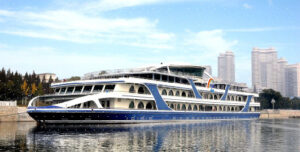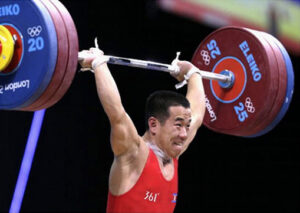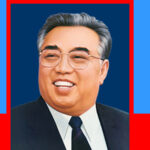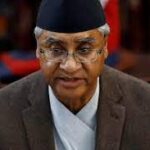A declaration rang out in the Democratic People’s Republic of Korea that it will build itself into a powerful and prosperous socialist country in which all the people are living happily, drawing the attention of the international community.
Many people of the world doubt if the country’s dream can come true when it is experiencing unprecedented trials and hardships amid the harsh sanctions by the hostile forces and world health crisis.
The construction of such a country must be supported first by funds.
Large-scale construction is underway in the countrynow: 10 000 flats will be built in Pyongyang this year, and a unique Pothong Riverside Terraced Houses District of 800 flats is now under construction in the city separately from the construction of 10 000 flats; in this way, it plans to build 50 000 flats in the city in five years. Housing construction in regional areas, including the construction of 25 000 houses in the Komdok area, a leading mineral production base, is also gigantic. Construction of the large-scale Tanchon Power Station is in full swing. Industrial construction, includingbuilding furnaces in the major iron production bases and a C1 chemical industry base, is also well underway.
This shows that the DPRK has a strong financial capacity. In other words, it can make investments in the economy while building such a large number of houses and giving them to the people free of charge.
Building a powerful country is inconceivable separated from a high level of science and technology and rich resources.
The DPRK is on a high level in basic sciences like mathematics and physics, and laser, space, CNC machine tool and software technologies are recognized by the world. A few years ago VOA commented that in view of the performance tables and operation of the CNC machine tools made public, it can be said that the country possesses the technology that can be ranked in the top ten in the world.
In the aspect of resources, the country has large deposits of magnesite, zinc, lead, graphite, tungsten, anthracite coal and iron. According to a report, the major underground resources, excluding the rich deposits of brown coal and limestone, when calculated in the international market price, amount to USD 3-4 trillion.
At its Eighth Congress held early this year, the ruling Workers’ Party of Korea indicated a clear-cut orientation of the country’s development, and all the people have turned out with confidence for the building of a powerful socialist country.
What the world must not neglect is the fact that the DPRK carried out the historic task of socialist industrialization within 14 years in the middle of the last century. As it did at that time, the world will see the country turning its dream into reality for a powerful socialist country within 15 years or so.
Gender Equality in the DPRK Seen by Law
On July 30, 1946, the Law on Sex Equality was promulgated in north Korea.
Having stipulated in the law that women enjoy the equal social status as men, the country guaranteed this through the people-oriented democratic constitution adopted in 1948 and the Socialist Constitution of the Democratic People’s Republic of Korea adopted in 1972 and amended and supplemented several times later.
An article of the Socialist Constitution of the Democratic People’s Republic of Korea reads,
“Women are accorded equal social status and rights with men.
“The State shall afford special protection to mothers and children by providing maternity leave, reduced working hours for mothers with several children, a wide network of maternity hospitals, creches and kindergartens, and other measures.
“The State shall provide all conditions for women to play their full roles in society.”
It is a reflection of the policy and steadfast will of the ruling Workers’ Party of Korea and the government of the country to give prominence to women, who occupy half of the population of the country, as part of the masters of the state and society.
The issue of empowerment of women is stipulated in detail in the sector-specific laws.
By the country’s Constitution, Korean women have the right to elect and to be elected like men without any discrimination.
They hold not a small proportion in the power organs at all levels, including the Supreme People’s Assembly. They accounted 17.6% of the Deputies to the 14th Supreme People’s Assembly elected in March 2019.
The Socialist Labour Law guarantees jobs for women according to their hopes and talents and without any discrimination. They never experience infringement on their rights to work on the grounds of marriage, pregnancy, childbirth or having children. Rather, they enjoy such benefits as maternity leave and maternity allowances.
The women also enjoy equal rights with men in family life.
The Law of the Democratic People’s Republic of Korea on Family, whose starting point is the complete equality between men and women, do not allow any privileges of men in family life; it stipulates that women have the freedom of and right to marriage on an equal status with men as an expression of their voluntary will; it also clarifies the state’s stand to pay close attention to protecting marriage and families and provide all the conditions for women’s sound upbringing and educating of their children.
Under this socialist system the Korean women are leading a worthwhile life for their families, society and state with high dignity and self-respect.
Floating Restaurant on the TaedongRiver


The general-service ship Mujigae, floating on the TaedongRiver that meanders through the central part of Pyongyang, the capital city of the Democratic People’s Republic of Korea, serves world delicacies as well as traditional Korean dishes.
The Weight Lifter Startles the World

This is Om Yun Chol of the Democratic People’s Republic of Korea, breaking the Olympic record at the 30th Olympic Games by lifting 168kg in the clean and jerk, three times his body weight, and 293kg in total, in men’s events. At the time the world media praised him, saying that he was a dark horse that had startled the world, and that he had unfolded a world-startling scene in the history of the men’s 56kg category.
He is an Olympic gold medalist and five times world champion.
Ssirum, Korean Type of Wrestling

This is a drawing Ssirum by Kim Hong Do, a famous painter of Korea in the 18th century.

In the Democratic People’s Republic of Korea, which values its national traditions, the Grand Bull Prize National SsirumContest is held every year.
Ssirum was registered on the list of intangible cultural heritage at the 13thsession of the Intergovernmental Committee for the Safeguarding of the Intangible Cultural Heritage of the UNESCO in 2018.

School Train


Schoolchildren in a remote northern village of the Democratic People’s Republic of Korea commute to school by train.
An Ostrich Farm in Pyongyang


This is an ostrich farm in a suburb of Pyongyang, the capital city of the Democratic People’s Republic of Korea. Covering an area of scores of hectares, it is furnished with over 110 sheds and up-to-date equipment.
Sought-After Unjong Tea

Unjong Tea is sought after among the Korean people, and there are many tea houses specializing in serving this kind of tea in Pyongyang, the capital city, and various other parts of the Democratic People’s Republic of Korea.
Doctors Go to Workplaces

In the DemocraticPeople’s Republic of Korea, teams of doctors visit workplaces for medical check-up and treatment, and free of charge at that.




